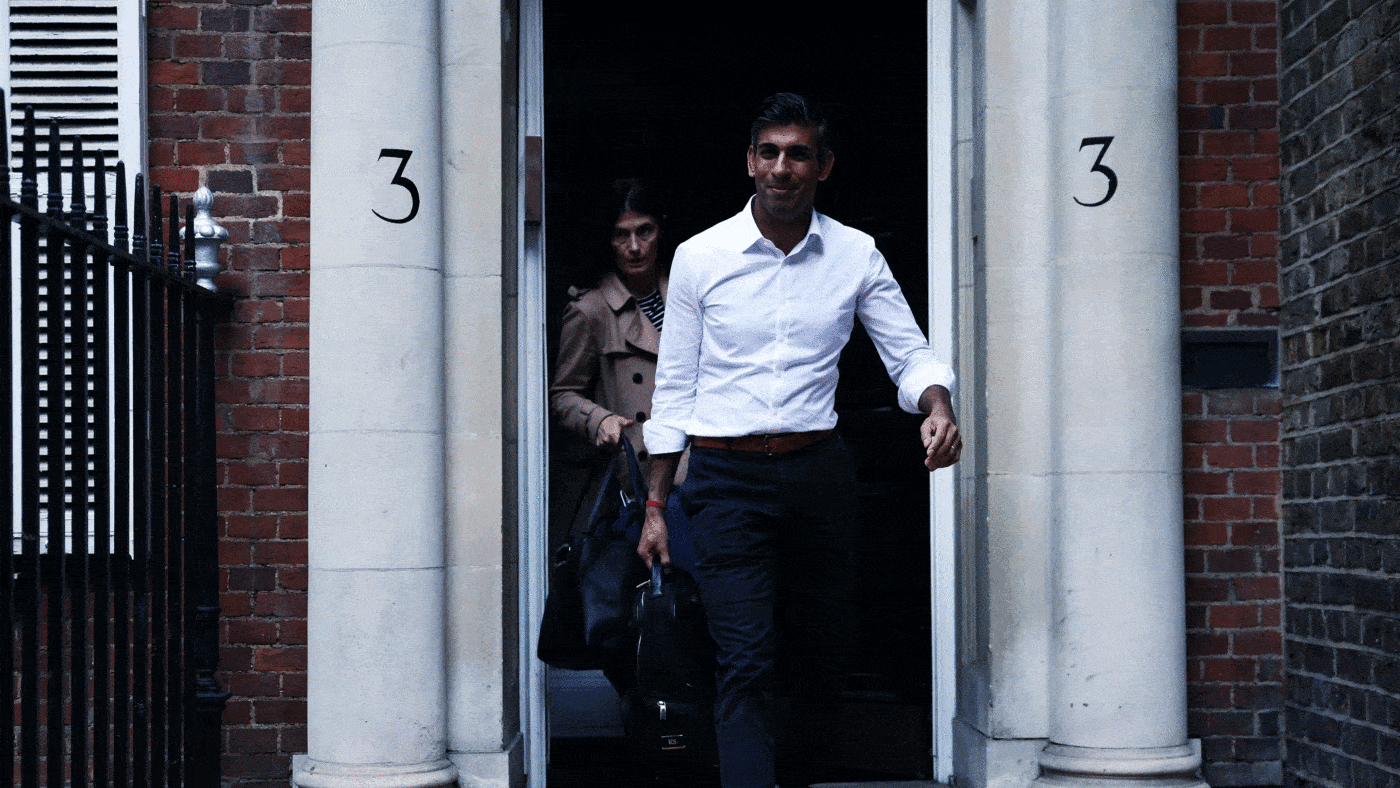In the end it was all mercifully straightforward. After the summer’s interminable ding-dong between Liz Truss and Rishi Sunak, this time it took just four days for one Prime Minister to exit and another to take the reins.
Top of Rishi Sunak’s in-tray, clearly, will be reassuring the markets that he will provide a sustainable long-term outlook for the public finances. Given his experience in the Treasury and the fact he is overwhelmingly likely to stick with Jeremy Hunt as Chancellor, Sunak stands a good chance of early success. Indeed, borrowing costs were already falling this morning in what most assume to reflect reassurance at Liz Truss’ imminent replacement.
Equally important, if he is to get anything done in the next two years, is calming down a party that has become addicted to in-fighting. Only a hopeless optimist would suggest Tory divisions are somehow going to melt away in a blaze of slick-suited competence. The fact Sunak has the backing of well-known figures from right across the parliamentary party – from Tom Tugendhat and Matt Hancock to Suella Braverman and Dominic Raab – suggests he should at least start off on a better footing than his predecessor, who never curried favour with the majority of her colleagues.
Economic stability might be the sine qua non of the new administration, but the new PM inherits a daunting laundry list of other pressing issues, of which health and border control are among the most salient.
So what else might Sunak prioritise as he seeks to rally his party and stop the next two years turning into its electoral swansong?
Given the change in circumstances in recent weeks, his leadership campaign over the summer can hardly be taken as a blueprint for government. Indeed, for much of the campaign it felt like Sunak was throwing bits of red meat at the wall and hoping something would stick with members who were more inclined to vote for Liz Truss. Still, there were enough policy proposals there to trace an outline of what a Sunak-led government might do.
On immigration, for instance, his ‘10-point plan’ was clearly pitched to appeal to both the right of the party and a public that is entirely fed up of people arriving here in small boats across the Channel. To wit, Sunak promised a cap on refugee numbers, a Small Boats Taskforce, a ban on asylum seekers staying in hotels and, probably most importantly, the continuation of the Rwanda policy. Equally telling will be how he approaches the broad question of economic immigration: will sector-specific liberalisation be on the agenda, or are we going back to the era of net migration targets, which often turned out to be illusory.
On health, Sunak’s five-point NHS plan included a ‘backlog taskforce’ modelled on the Covid vaccine rollout, with the aim of getting waiting lists down. It’s a sad indictment of the state of the NHS that another of his health pledges was that ‘everyone who has been waiting over 18 weeks [will be] contacted by their NHS Trust within 100 days to advise on when they can expect treatment’. Even if implemented perfectly, this would still mean patients waiting potentially more than three months just to find out when their operation is, not to actually get treatment.
There were some intriguing ideas for the structure of government too, including the recreation of a dedicated Department for Energy and a Brexit Delivery Unit tasked with rescinding held-over European law in short order. Whether those kind of ‘machinery of government’ changes survive the exigences of a looming recession remains to be seen, but it would be no great surprise if they were relegated to the ‘nice idea’ pile.
One area where we can only hope he executes a sharp u-turn is housing, where the stand-out summer pledge was to stop councils from applying to build on green belt land – the exact opposite of what we need when our urban areas are crying out for new homes. Given he will be reluctant to risk a fight with his own back benches, perhaps the best we can hope for is Henry Hill’s idea of a ‘Metropolitan Housing Act’, focused on densifying our cities, with new housing concentrated in areas the Tories haven’t a hope in hell of winning anyway.
All of that will, however, be subjugated to the overwhelming priority of getting the public finances in some kind of order. That will mean tax rises, spending cuts and inflicting economic pain on a lot of people – let’s hope Rishi’s ready for it.
Click here to subscribe to our daily briefing – the best pieces from CapX and across the web.
CapX depends on the generosity of its readers. If you value what we do, please consider making a donation.


